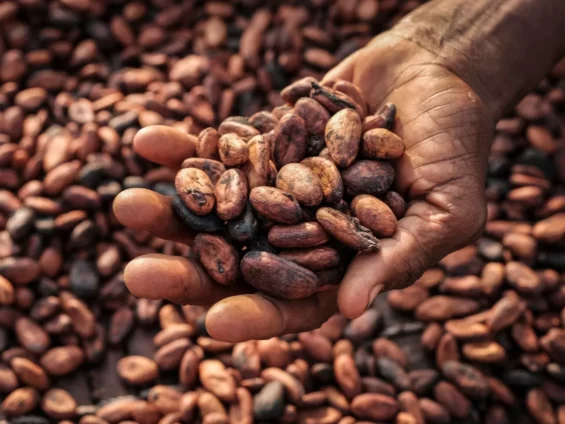Cabinet will publish the turnaround strategy of Ghana Cocoa Board (COCOBOD) by the end of July 2024, the IMF has revealed in its latest document.
This is aimed at restoring COCOBOD’s financial sustainability by strengthening financial oversight; reviewing the producer pricing mechanism to balance the need for a fair distribution of export proceeds to farmers and for covering COCOBOD’s financial and operational costs; rationalizing costs including staffing, industry, and financing costs based on a functional review of COCOBOD’s departments and subsidiaries; and phasing out quasi-fiscal activities entailed by the financing of cocoa roads and fertilizer programmes.
According to the International Monetary Fund, although COCOBOD’s financial position improved in 2023, the current year is proving challenging.
“Faced with a significant shortfall in production and a large increase in spot market prices, and following a similar decision in Ivory Coast, the authorities increased the farmgate price of cocoa by 58.0% in April 2024 to prevent smuggling and support Ghana’s cocoa market. To avoid this decision leading to a cashflow deficit, COCOBOD intends to increase the proportion of sales at the current high spot prices, while seeking additional spending rationalization”, the Fund said in its Ghana Second Review under the Extended Credit Facility.
It commended the Ministry of Finance for its enhanced financial oversight capabilities through the establishment of a cocoa desk to review COCOBID’s financial position regularly.
In this context, it added that “the authorities [government and the affected organisations] have also requested Fund technical assistance to develop an effective State-Owned Enterprise oversight strategy.
In February 2024, COCOBOD tapped $200 million from the World Bank loan to rebuild disease-hit cocoa farms.
The disease has wiped off about 500,000 hectares of farmlands and reduced cocoa output from the West African nation, the world's second-biggest cocoa producer after neighbour Ivory Coast.
Ghana's cocoa output declined to 600,000 metric tons last year after peaking at 1.048 million tons in the 2020/21 season, as the cocoa swollen shoot virus, aging plantations, illegal mining and smuggling took a toll on the sector.
Latest Stories
-
Sweet Medical Centre founder offers free surgery to June 3 disaster victim
20 minutes -
Red Notice for Ghana’s wanted Ex-Minister deepens national divide
31 minutes -
Constitutional Review Committee engages Akufo-Addo, Bawumia and Kyei Mensah-Bonsu
31 minutes -
Ghana’s economy must be more diversified – Swiss Ambassador to Ghana
32 minutes -
Government to ban importation of excavators without permit under “No Permit, No Excavator” policy
48 minutes -
Builsa North MCE commends president’s ‘Tree for Life’ initiative
54 minutes -
GH¢1 fuel levy necessary to avert 50% rise in electricity tariffs – Nii Lante Vanderpuye
56 minutes -
Seth Terkper justifies GH₵1 fuel levy
58 minutes -
Illegal mining surges in Western region despite ongoing crackdown – Report
1 hour -
JoyNews uncovers Chinese firms sold millions of washing detergents without GSA certification
1 hour -
June 4 Commemoration: Let’s build bridges across our differences – Deputy Interior Minister
2 hours -
Government to ban wooden school furniture, styrofoam food packs
2 hours -
Tarkwa forestry officials attacked by illegal miners in Neung South reserve
2 hours -
Full list of Awardees at the 9th Edition of the Annual CEO Summit
2 hours -
Freedom at last: Court of appeal acquits Ataa Ayi’s alleged accomplice after 23 years in prison
2 hours

